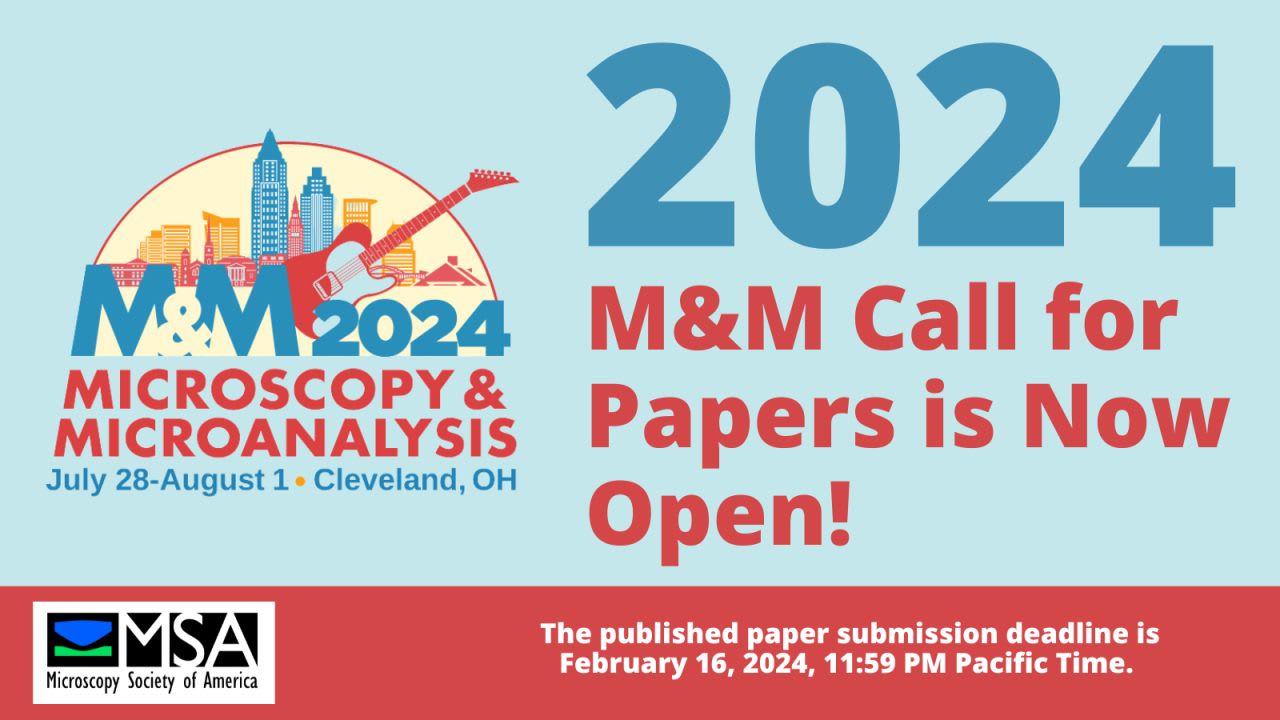From Stars to Atoms: Discovering the Wonders of Nanoworld
In high school, I was fascinated by astronomy and used telescopes to gaze at the vast cosmos. Now, as a materials scientist, I use electron microscopes to explore the tiny realm of atoms and molecules. Studying the nanoscale is not only a way to satisfy our curiosity, but also a means to create new technologies that can improve our lives. We are on an exciting journey to the frontiers of science and innovation, and hopefully, we will reach them with compassion and not conflict.
Microscopy & Microanalysis 2024
C05 - Correlative Microscopy Using Light, Electron, and X-ray Microscopy Correlative microscopy can be a powerful tool to examine both biological and material samples across scales. Combining different imaging modalities with the powerful array of molecular probes available allows researchers to gain insights into dynamic processes which otherwise would be difficult to observe. This symposium will discuss recent breakthroughs in correlative light, electron, and soft X-ray microscopy and techniques for biological and material research, particularly in cryogenic and in-situ settings. Presentations in this symposium will demonstrate technical advances, new instrumentation, and novel data handling workflows used to provide correlative biological structures, micro/nanostructural transformation in materials, and environmental processes.
Communicate Your Research to Kids by Writing for Frontiers for Young Minds
Frontiers for Young Minds believes that the best way to make cutting-edge science discoveries available to younger audiences is to enable young people and scientists to work together to create articles that are both top quality and exciting. We are committed to providing high-quality, plain-language articles about cutting-edge science. Researchers have a chance to reframe their own recent research and publications into language that can be understood by a younger audience. Authors need to respond to and integrate the feedback provided by their Young Reviewers.
Featured on Media
May 2023
Pacific Northwest National Laboratory News: Du Appointed Associate Editor of Frontiers for Young Minds
March 2023
Pacific Northwest National Laboratory News: Du Wins Distinguished Student Award
March 2022
Pacific Northwest National Laboratory News: Du Named to Early Career Editorial Advisory Board
September 2021
International Institute for Nanotechnology News: Jingshan Du receives award for excellence in materials and metallurgical engineering
May 2020
SPIE.org: Du awarded SPIE Optics and Photonics Education Scholarship
International Institute for Nanotechnology News: Scholarship awarded for study of nanoparticle structures and dynamics
May 2018
NanoScientific Magazine (Vol 13, pp. 23-24) and the Park AFM website

April 2015
Cover story on Zhejiang University website: Asking Myself at the Finish Line of College



